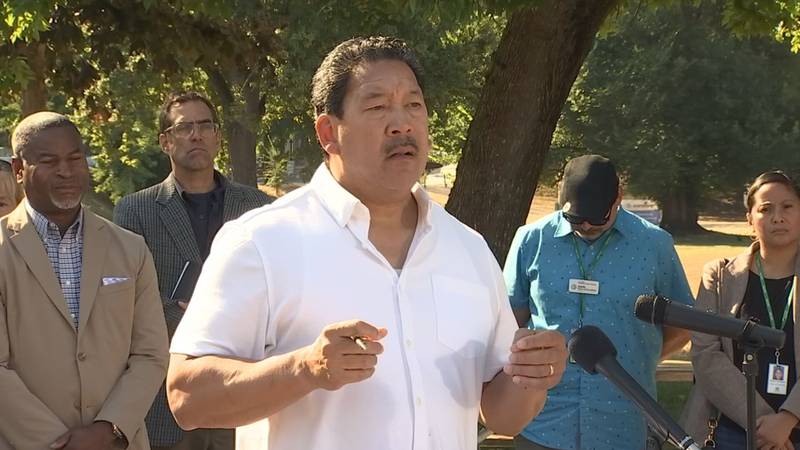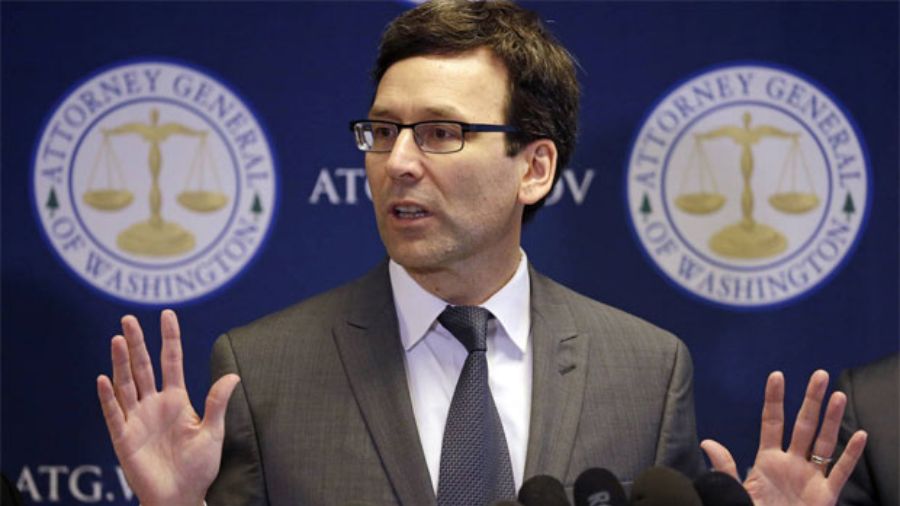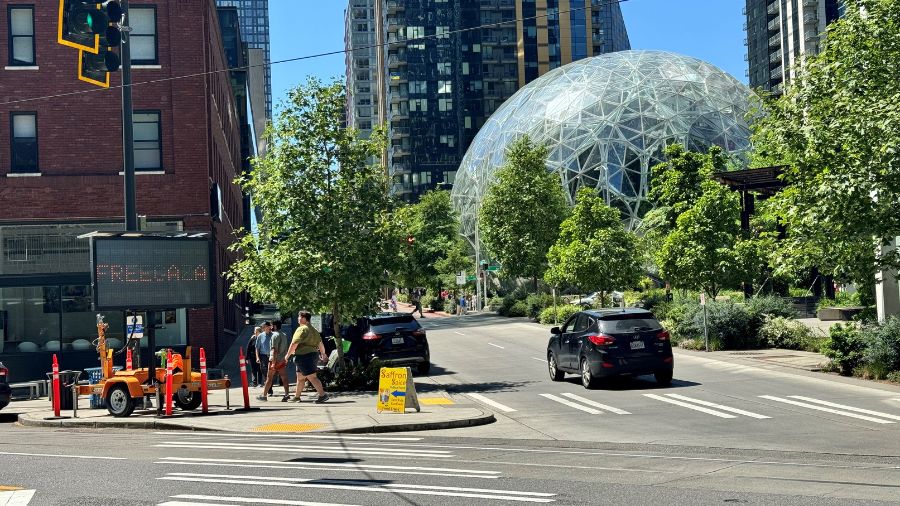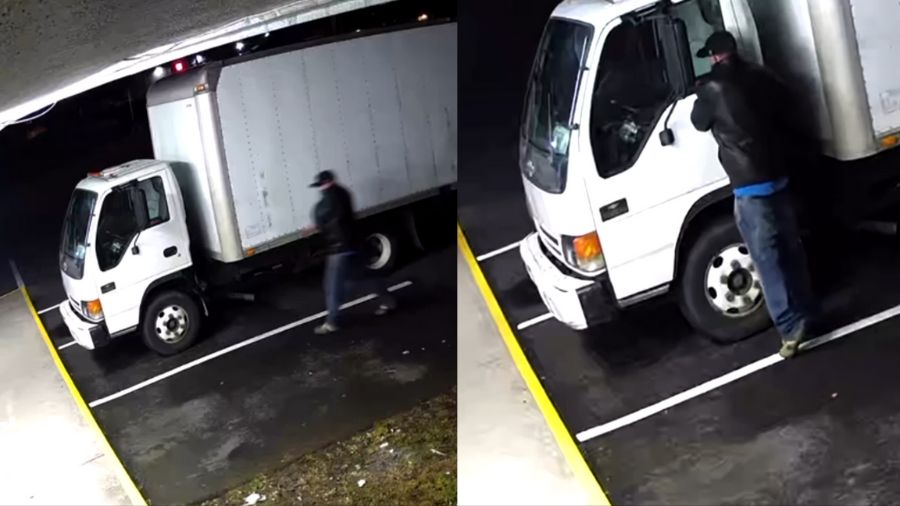Rantz: Seattle mayor delaying drug law because it’s not yet written
Aug 15, 2023, 5:52 PM | Updated: Aug 16, 2023, 4:05 pm

Seattle Mayor Bruce Harrell (Photo from KIRO 7)
(Photo from KIRO 7)
Seattle Mayor Bruce Harrell’s office is responsible for the delay in the city’s drug law that would criminalize possession and public use. He’s withholding an Executive Order and other actions that are key pieces of the ordinance, demanding the city council vote on something they haven’t yet seen. It’s being withheld because it doesn’t yet fully exist.
Proposed Council Bill 120645 aims to align city law with state law. This new ordinance would move the gross misdemeanor drug crimes to the City Attorney’s Office, after the progressive and socialist wing of the city council rejected a previous attempt thanks to a last minute change of heart by councilmember Andrew Lewis. But the ordinance is incomplete, which explains why the council doesn’t yet have the votes to pass it.
The bill references an Executive Order (EO) and Executive actions that would guide the Seattle Police Department (SPD) in adopting “policies governing arrests for public use and possession of a controlled substance.” But that EO doesn’t exists.
Mayor wants a vote on a policy that doesn’t exist
At Monday’s special meeting, council member Sara Nelson was critical of this new ordinance, arguing the city “could be passing a law that refers to external policies that could bind how this law is enforced.” And no one has seen those external policies.
“First, in Section 3-A, [is a] reference to policies and Executive Orders that we haven’t seen yet. And then in 3-E, that’s been read to us, by establishing the ‘threat to harm standard’ that will govern the officers’ decision to make an arrest. But we don’t yet know the threat of harm that will be defined,” Nelson warned.
Andrew Myerberg, who is shepherding the legislation through the council on behalf of the Mayor, confirmed what Nelson is referencing hasn’t yet been created.
“The policy we expect to be developed, ideally by mid-September, is what we’ve been discussing with SPD and they are working on it actively right now. With regard to the Executive Order, again, our position is, just like we’re discussing at this table today, is to hear some of the thoughts of the council as we continue to finesse and finalize it,” Myerberg explained.
More from KTTH: Jason Rantz announces first book, ‘What’s Killing America’
What about amendments to the Seattle drug law?
Further complicating matters, how do you plan and offer amendments to a bill you haven’t fully seen?
With a potentially limited timeline to offer and legally vet amendments, Nelson said she fears the city would be rushing policies that are illegal. She mentioned a push by the Department of Public Defense to amend the bill to give municipal judges a new power to merely divert cases for treatment. Nelson pointed out that it’s likely to be illegal because the power to create a judicial diversion program is given to the state legislature, not the city.
“This is why we shouldn’t workshop our criminal code,” she warned.
Strategy or incompetence?
It appears Mayor Harrell’s position is for the council to effectively vote on a new drug law that they haven’t seen yet.
It’s either a strategic position by the mayor to have more control over drug policy, circumventing the council, or a stall tactic because the mayor’s office still hasn’t authored its position, despite having months to do so. It appears to be a combination of both.
If Harrell wants to circumvent the council for drug policy, he’ll certainly run into resistance from council members Nelson, Alex Pederson, and Deborah Juarez unless they’re offered assurances that arrests and prosecutions are viable and legitimately an option to deal with the growing drug crisis. This concern likely explains why neither Juarez, nor any other council member, moved to add the revised drug bill to the calendar for a vote last week. Having done so would have allowed the council to meet the self-imposed mid-August deadline to pass legislation.
“It was clear there were not five votes to successfully amend” and add the bill to the calendar, councilmember Lewis explained to the Jason Rantz Show on KTTH. He said he would have supported that move to add the bill.
The bill also references a desire to push addicts into diversion. But it’s not yet funded. Myerberg could not explain where the funds would come from. Budget concern was raised by councilmember Teresa Mosqueda, a defund police activist who does not support arresting for drug use or possession.
As currently written, bill won’t lead to many arrests
Based on the bill’s text, drug addicts would still likely avoid arrest and prosecution.
The bill forces officers to adopt a new standard: are the users a threat to themselves or others as a result of the drug possession or use? If so, an arrest can be made. If not, there won’t be. At the same time, King County still severely restricts bookings in jail, which includes drug users. So even if an arrest is made, it’s unlikely to result in a booking.
Myerberg also noted that the “threat of harm” policy would be defined by the city, and not based on state law. But that standard might be purposefully onerous to meet. Myerberg said the goal is diversion, not arrests, “even in a threat of others scenario.” If this is the case, it could threaten the bill’s support by the Seattle Police Officers Guild (SPOG) and councilmembers like Nelson, Pederson and Juarez.
SPOG endorsed the bill as written, adopting an “it’s better than nothing” attitude. Nelson said she “will oppose any attempts to interfere with the city attorney’s prosecutorial discretion.”
More from Jason Rantz: Accused shoplifter candidate won’t drop out, surveillance released
As Mayor stalls, fatal overdoses skyrocket
No matter what happens with this bill, the soonest it could be implemented is some time in October. That puts the city months behind the rest of the state at a time when we’re about to hit another record-high year of fatal overdoses.
After effectively legalizing drugs, which was responsible for a historic number of fatal overdoses statewide, Democrats were forced to walk back their drug legislation. They ended up making possession and use a gross misdemeanor, a move that went into effect this week. But in Seattle, users can continue to smoke fentanyl on downtown sidewalks, in parks near kids, and at bus stops without fear of consequences.
If any arrests were made, it would go to the King County Prosecuting Attorney’s Office. But prosecutor Leesa Manion has said her office cannot handle these cases. Seattle City Attorney Ann Davison, a Republican who’s seen tremendous results in her reforms of that office, would have received jurisdiction over the cases had the council not rejected the straightforward ordinance she, along with Nelson and Pederson, offered in June.
As of August 14, there have been 828 fatal overdoses in King County, with the majority occurring in Seattle. Without any meaningful drug policy, that number will continue to climb, moving the county passed last year’s record high 1,000 deaths.
Listen to The Jason Rantz Show on weekday afternoons from 3:00 p.m.–7:00 p.m. on KTTH 770 AM (HD Radio 97.3 FM HD-Channel 3). He is the author of the book “What’s Killing America: Inside the Radical Left’s Tragic Destruction of Our Cities.” Subscribe to the podcast. Follow @JasonRantz on Twitter, Instagram, and Facebook. Check back frequently for more news and analysis.














